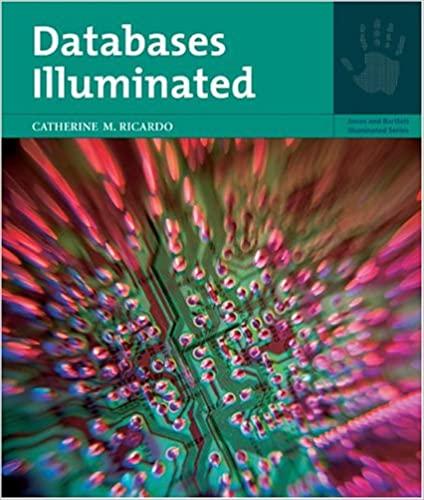Question
A local frozen yogurt shop would like you to write a program to help them calculate the cost of their customers yogurt purchases. All yogurt
A local frozen yogurt shop would like you to write a program to help them calculate the cost of their customers yogurt purchases.
All yogurt in the store runs $0.44 per ounce, before toppings. And all purchases will be in whole ounces.
Single servings of yogurt may be purchased in a plastic cup or waffle cone.
o Plastic cups are free. o Waffle cones cost an additional $0.61
Customers may optionally add toppings to their yogurt at $0.53 per topping.
If a customer purchases 10 or more ounces of yogurt, they will get a 5% discount on the entire bill.
Within your program, you must:
Use constants for ALL fixed prices and the discount limit and rate
Use at least one compound arithmetic operator, somewhere in the code
Have a minimum of 4 decisions (however, more may be needed, depending on how the code is implemented).
Test 1
Define the necessary constants at the top of the main method.
Read all the inputs from the user, after creating appropriate variables to hold each answer, as follows:
The number of ounces of yogurt purchased
Whether the customer wants to add toppings o Read the answer from the user
('y'/'Y' for toppings, 'n'/'N' for no toppings, in either upper or lowercase) o If the customer wants toppings, also read the number of toppings to add
(if the customer does not want toppings, do not ask this question)
Whether the customer wants a plastic cup or a waffle cone o Read the answer from the user (1 for plastic cup, 2 for waffle cone).
NOTE: You may assume that the user will enter a valid answer for each question. (see next page for example)
Sample prompts and input
Yogurt Bill Calculator
Enter yogurt weight (whole ounces):
11
Do you want toppings (Y or N)? y
How many toppings?
3
Enter 1 for a plastic cup or 2 for a waffle cone:
2
Test 2
Display 2 blank lines after reading all inputs. Then display an order summary, as follows:
All order details should line up on the right with the last character in position 25.
The container type should be displayed as a String: cone or cup.
If the user did not want toppings, the number of toppings will be 0.
YOGURT ORDER
Weight (oz): 11
Container: cone
Number Toppings: 3
Test 3
Display a blank line. Then calculate and display the bill information, as follows:
YOGURT BILL
Yogurt Cost: 4.84
Cone cost: 0.61
Topping cost: + 1.59
-------
7.04
Only display the cone cost, if the waffle cone is chosen.
Otherwise, if a plastic cup is chosen just display the yogurt and toppings cost lines.
Include an addition operator (plus) on the Topping cost line.
If the number of toppings is 0, display 0.00 for the toppings cost.
NOTE: For formatting purposes, all of the costs will be under 100.00
Tests 4 7
Extend the program to give the customer a discount, if it applies.
(if the discount does not apply, the program should not display anything further).
YOGURT BILL
Yogurt Cost: 4.84
Cone cost: 0.61
Topping cost: + 1.59
-------
7.04
Discount: - 0.35
-------
6.69
If displayed, include a subtraction operator (minus) on the Discount line.
Sample Run 2 (no toppings, no cone, no discount):
Yogurt Bill Calculator
Enter yogurt weight (whole ounces):
8
Do you want toppings (Y or N)?
N
Enter 1 for a plastic cup or 2 for a waffle cone:
1
YOGURT ORDER
Weight (oz): 8
Container: cup
Number Toppings: 0
YOGURT BILL
Yogurt Cost: 3.52
Topping cost: + 0.00
-------
3.52
Any help would be great!
Thanks!
Step by Step Solution
There are 3 Steps involved in it
Step: 1

Get Instant Access to Expert-Tailored Solutions
See step-by-step solutions with expert insights and AI powered tools for academic success
Step: 2

Step: 3

Ace Your Homework with AI
Get the answers you need in no time with our AI-driven, step-by-step assistance
Get Started


